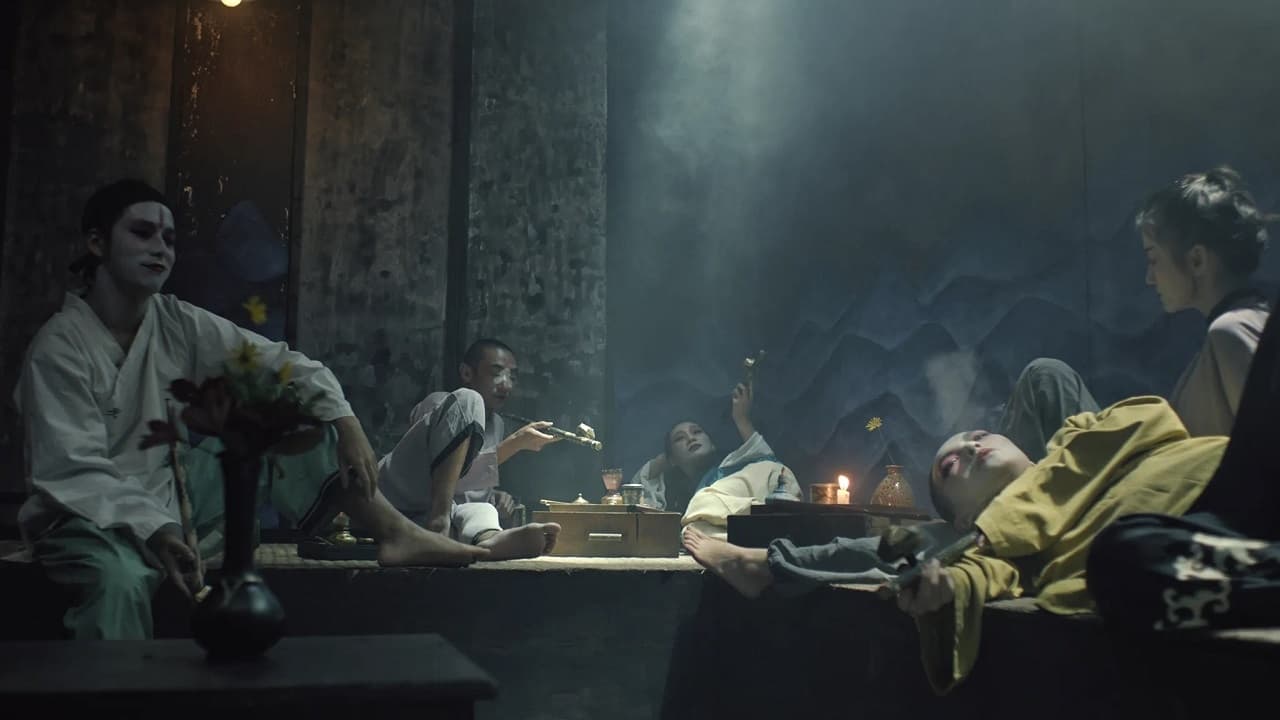Read 椒麻堂会 (2022)
Watch 椒麻堂会 (2022) Spoiler

On a 1980s evening, the topmost clown-actor of the 20th century Sichuan opera, Qiu Fu passes away in an accident and half-unwillingly sets off for the Ghost City under the escort of two underworld officials. Along the way, he meets old friends. As they recall the past, a history of the living is conjured up.

-
## The Silent Symphony of Loss: Deconstructing "Vilem, the Forgotten Banquet"
"Vilem, the Forgotten Banquet" (椒麻堂会), director Qiu Sheng's deeply melancholic and visually stunning film, isn't just a movie; it's a lingering echo of personal and cultural loss, wrapped in the shimmering tapestry of Sichuan Opera. Spoilers abound, so proceed with caution if you haven't experienced this haunting masterpiece.
The film's narrative unfolds through the eyes of Wang Er, a trumpet player whose presence at his father's lavish funeral is a constant source of quiet discomfort. He’s adrift, disconnected, a bystander to the elaborate rituals designed to appease the departed and ensure a smooth transition to the afterlife. These rituals, presented with meticulous detail, are both fascinating and alienating, highlighting the ever-widening chasm between tradition and modernity.
At the heart of this alienation is the recurring presence, or rather absence, of Vilem. Who is this ethereal figure whose name whispers through the film like a half-forgotten melody? Initially, Vilem appears to be a figment of Wang Er's imagination, a manifestation of his grief and guilt. We see him fleetingly, a silent observer, draped in shadows, his presence more felt than seen. He's a ghost of the past, a specter haunting the edges of the present.
The film slowly unveils Vilem's identity, revealing him to be a former friend of Wang Er's father, a celebrated Sichuan Opera performer who tragically died. His death, shrouded in mystery and whispered rumors, casts a long shadow over the entire film. Vilem's absence is not just a personal loss for Wang Er's father; it represents the fading glory of Sichuan Opera itself, a cultural art form struggling to survive in a rapidly changing world.
Qiu Sheng masterfully uses symbolism to amplify this sense of loss. The vibrant colors of the opera costumes contrast sharply with the drab, concrete surroundings of modern China. The elaborate funeral rituals, with their intricate dances and mournful music, are juxtaposed against the mundane realities of everyday life – the clatter of mahjong tiles, the incessant drone of traffic, the impersonal glow of smartphones.
Wang Er's journey is one of quiet introspection. He's not actively seeking answers; rather, he's passively absorbing the atmosphere of grief and remembrance. He's a conduit, a vessel through which the audience experiences the collective mourning for a lost friend, a lost art form, and a lost way of life.
The film's most poignant moment comes not in a dramatic revelation, but in a subtle shift in Wang Er's perception. As he witnesses the final performance of the Sichuan Opera troupe, a performance dedicated to Vilem's memory, he begins to understand the depth of his father's love for his friend and for the art form they both cherished. He finally connects with the tradition he had previously held at arm's length.
"Vilem, the Forgotten Banquet" doesn't offer easy answers or grand pronouncements. Instead, it offers a nuanced and deeply moving meditation on grief, memory, and the enduring power of art to transcend time and loss. It's a film that lingers long after the credits roll, prompting viewers to reflect on their own connections to the past and the fragile nature of cultural heritage. The final image of Wang Er, no longer a detached observer but a participant in the collective mourning, suggests a glimmer of hope – a possibility of preserving the memory of Vilem and the beauty of Sichuan Opera for future generations. The banquet may be over, but the music, however faint, still echoes.